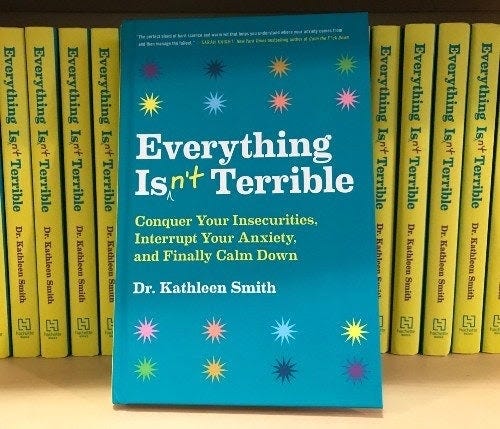Are You Critical of Others' Intense Closeness?
A different way of thinking about anxious twosomes.
Ok folks. We are one week away from the pub date for True to You. You can preorder the book to get the companion workbook here. And you can RSVP here for my July 9 book launch event at East City Bookshop (both in person and virtual). I am on vacation this week in Vermont, so no First Friday question this week. Thank you again to everyone who has supported with preorders! They make a huge difference in how many copies that bookstores order and display. - K
Take a second, and think about a relationship in your family, friend group, or workplace that really annoys you. One you’ve spent hours complaining about to others or trying to fix. One where you could easily slap together a power point presentation on the level of perceived dysfunction.
Maybe you’re thinking about:
Your sister’s and mother’s intense closeness.
One parent doing everything for the other.
A teenager in constant contact with their girlfriend.
A parent who worries constantly about their child.
Two colleagues or family members who are always fighting.
Two friends who do everything together.
Complaining about intense twosomes is one of humanity’s favorite hobbies. We tend to have a lot of ideas about how people should relate to each other differently, and fewer ideas about what this challenge has to do with us.
When two people are stuck in a pattern of relating, there is usually a third person (or more) who benefits. Maybe it’s the kid who gets less of the worry. Or the boss who benefits from playing “mediator” for two warring colleagues. Or the child who tells themselves, “My marriage is going to be nothing like my parents’ marriage.” We often get a functional boost from these positions.
What we often label as our own maturity is in reality simply being in an outside position in a triangle. Our position can feel superior because it is less visibly intense than conflict or overfunctioning for someone. But look closely, and you’ll see that you’re a part of how things shake out. And maybe even how they stay stuck.
Instead of asking, How do they need to grow up?, try asking yourself, What am I going to do with my position? If you’re the kid who got less of the anxious focus, or the colleague who hasn’t gotten pulled into the chaos, what do you do with that reality? Often we squander it by trying to teach people to behave better, to operate with less intensity. Or we simply complain to others.
Trying to teach someone how to relate to people with less intensity is its own form of intensity. It is putting pressure on the other to be a certain way in order for you to feel better.
People tend get more mileage when they focus on how they relate to people as individuals, not as twosomes.
Here are some questions that might be useful for you:
How have I benefited from these two people being “stuck together” or in conflict?
How have my efforts to interrupt the intensity actually reinforced it?
When do I anxiously lend my own thinking to them, rather than being curious about how they will navigate a challenge?
How can I stay focused on my individual relationships with each of them, rather than on how they relate to each other?
Here are some other posts I’ve written about this topic:
And here’s my current view of Lake Champlain. Hope to see some of you in person in DC next week!
News from Kathleen
Don’t forget that you can access all past paid content for my newsletter (including worksheets and past Friday Q&As) by upgrading your subscription. If you can’t swing one and need a comp, just email me.
Preorder my book TRUE TOU to get the companion workbook today! Preorder my upcoming book True to You, submit your info here, and download the workbook + sneak peek of a chapter. Thank you SO MUCH to everyone who has preordered so far.
Book events:
NEXT WEEK! Washington, DC East City Bookshop - July 9th - RSVP if you want to attend either virtually or in person!
Kansas City area - Rainy Day Books, Aug 20th
Want a signed, personalized copy? You can preorder it from my neighborhood bookstore, East City Bookshop, the best bookshop of all the bookshops.
Want to read more of my writing? Get my last book, Everything Isn't Terrible or check out my newsletter archives.
Email me if you’re interested in Bowen theory coaching or want me to speak to your group or workplace. Follow me on Linkedin, Facebook, or Instagram.
Want to learn more about Bowen theory? Visit the Bowen Center’s website to learn more about their conferences and training programs.







